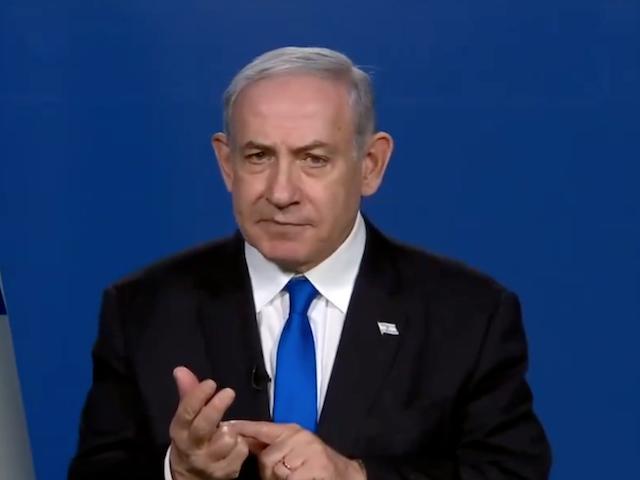As the clock ticks on the fragile ceasefire and negotiations for hostage release, Prime Minister Benjamin Netanyahu has introduced a set of stringent conditions aimed at securing Israel’s strategic and security interests. These conditions, outlined in a revised proposal, have sent ripples through diplomatic channels and cast a shadow on the prospects of an imminent agreement.
Netanyahu’s Four Pillars of Security:
- No Return of Terrorists: The revised proposal firmly prohibits any return of terrorists from the southern Gaza Strip to the north. Each Gazan seeking to return northward will undergo rigorous checks, ensuring no terrorist elements slip through.
- IDF Presence on the Philadelphi Corridor: The continued presence of the Israeli Defense Forces (IDF) on the critical Philadelphi Corridor remains non-negotiable. This narrow strip along the Gaza-Egypt border is a strategic buffer zone to prevent arms smuggling.
- Resumption of Hostilities: Israel reserves the right to resume military operations if the deal’s initial stage fails to progress to the second stage. This clause acts as a deterrent against any breaches or delays in the agreement's implementation.
- Pre-approval of Hostage List: The list of living hostages slated for release must receive pre-approval from Israel. This measure ensures transparency and accountability in the process.
High-Stakes Diplomacy in Rome:
In an effort to hammer out the details, Mossad Chief David Barnea traveled to Rome for high-level negotiations involving CIA Director William Burns, Qatari Prime Minister Mohammed bin Abdulrahman Al-Thani, and Egyptian Intelligence Chief Abbas Kamel. Despite the intense discussions, Barnea returned to Israel with the deal still hanging in the balance.
Hebrew media:
— Brian’s Breaking News and Intel (@intelFromBrian) July 29, 2024
“Walla Hebrew website:
Sources estimate that Hamas will not accept the new conditions set by Netanyahu, which may put the negotiations in a dead end
Skepticism from Hamas:
According to the Lebanese newspaper Al-Akhbar, which maintains close ties with Hamas, there is significant skepticism about Hamas accepting these stringent conditions. The Egyptians and Qataris, key mediators in this negotiation, have assessed the likelihood of Hamas agreeing to the proposal as "highly unlikely." Despite receiving the new proposal, Hamas officials have yet to formally acknowledge it, with discussions still revolving around the "atmosphere and signals."
Details of the Proposal:
The meetings in Rome focused on several critical points, notably Israel’s potential withdrawal from the Philadelphi Corridor. Al-Akhbar reports that this withdrawal is contingent upon the rapid and efficient installation of surveillance systems along the Gaza-Egypt border. An Egyptian official indicated that Cairo had requested a gradual withdrawal, provided Israel has not discovered any tunnels since taking control of the corridor in May.
The Israeli envoy also proposed an international mechanism to prevent the return of armed individuals to northern Gaza and suggested repositioning Israeli forces within Gaza. This repositioning would allow for rapid response to any incidents, ensuring security during the so-called calm period.
Our soldiers have fallen to achieve the defined objectives of the battle. Therefore, any deal that includes abandoning the Philadelphi Corridor and the Nitzanim Route will be dangerous. The deaths of our fallen heroes must not be in vain. We must continue the fight until victory… pic.twitter.com/mcEPUvckdM
— Im Tirtzu (@IMTIzionism) July 29, 2024
On-the-Ground Realities:
Some proposed routes for Israeli military presence pass through recently evacuated neighborhoods in Khan Yunis. The Israeli military movements aim to establish a foothold, enabling swift intervention in any area if needed.
Hope Amidst Uncertainty:
Sharon Sharabi, brother of Yossi Sharabi, who was murdered in Hamas captivity, and Eli Sharabi, who remains a hostage, expressed cautious optimism on Channel 12. Having just returned from Qatar, he noted significant progress in the hostage deal, urging both sides to sign and implement the agreement promptly. "The details are closed. Israel needs to sign the deal, Hamas needs to sign the deal and implement it. If we miss this opportunity, the talks could freeze, which is very troubling for the families of the hostages and endangers the hostages' lives," Sharabi emphasized.
As the region holds its breath, the outcome of these negotiations will undoubtedly shape the future of the Israeli-Gaza conflict and the broader Middle Eastern landscape.


